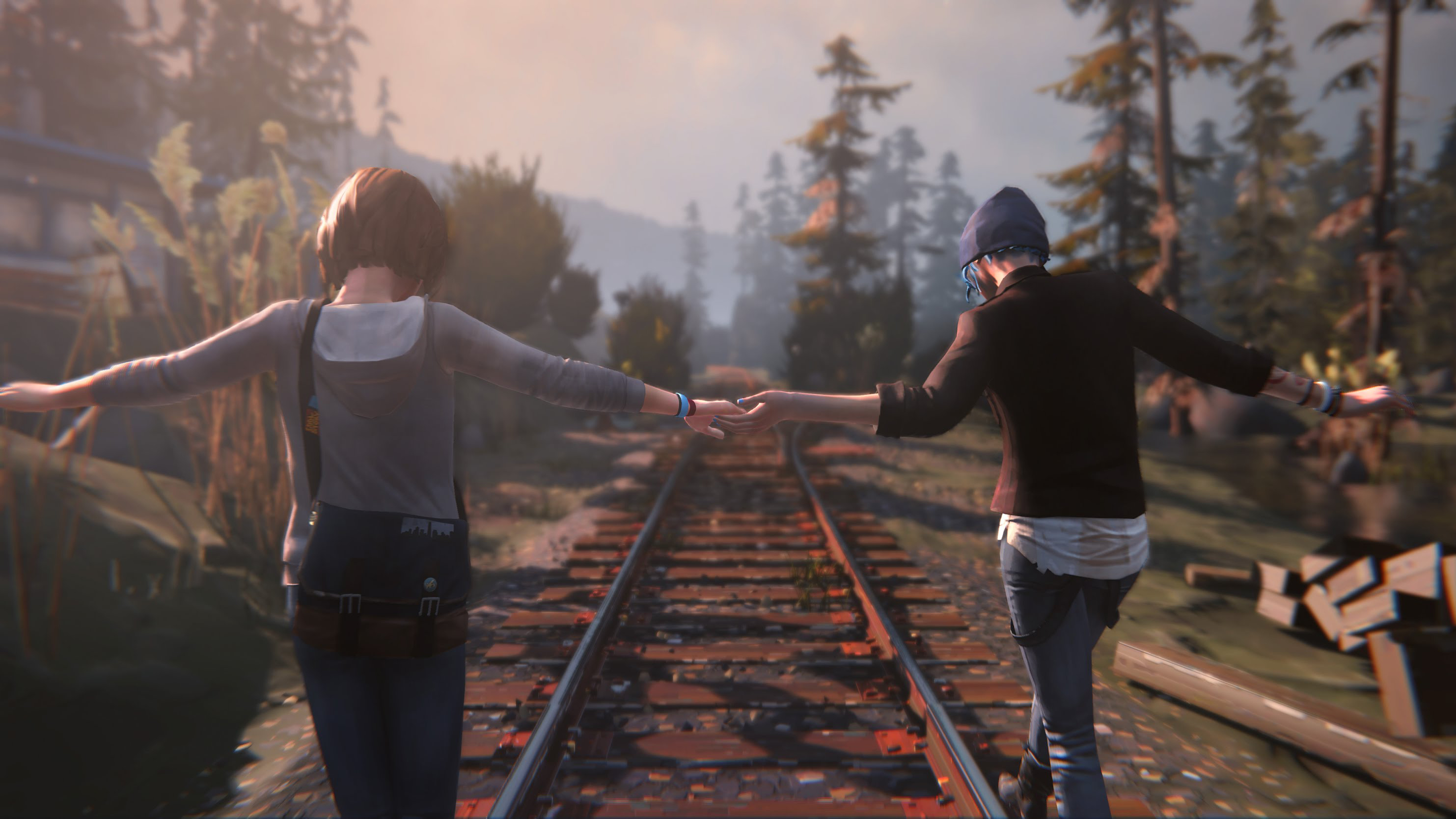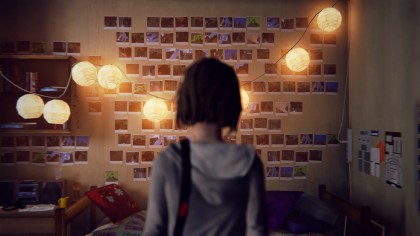
If there's one takeaway point from this week's episode of 'The Internet', it's that Marty McFly would probably be a bit disappointed by the real 2015. Smartphones and Twitter don't really translate to great cinematography in the same way as hoverboards and self-tying shoes. And there's all the housing crisis stuff, which doesn't make for a thrilling plot. Honestly, Marty - put down the Sports Almanac and just buy a two-bed cupboard in Shoreditch. You'll be a millionaire.
One thing he would find is that we're all still watching the TV, just like he predicted. Only we're not watching TV on the TV any more. Live TV is going down the same path of impending obscurity that VHS tapes and shoulder pads would be heading towards in Marty's time, and some of it's being replaced with the newest medium: video games.
So, we still switch on our TVs, but often it's not real people (playing fake people) that we're seeing, it's blobs of polygons and voice acting that are getting closer and closer to something human with every year. One of the most exciting things about watching this progress is that, occasionally, a video game will absolutely NAIL humanity by capturing the feeling of what it is to be a sentient bunch of cells that attempts to understand itself through art.
And so, we have Life is Strange, this weird, quiet little game with a premise that would probably make most people roll their eyes: you play a teenage girl who loves photography, awkward teen phrases, and selfies - who can control time. Sounds dumb, right? But somehow it's not. Life is Strange has gone from a first-episode "hmmm" to being the watercooler topic of the season, with its sensitive portrayal of topics from female friendship and crushes to betrayal and suicide and its gripping yet personal story.
We still talk about television, but it's not like it used to be. We'll gather around Bake Off episodes like hungry cavemen around a vanilla-scented pastry fire, and we'll get excited about new seasons of The Walking Dead and Hannibal and Downton Abbey, but the internet and new technology have meant that we're no longer tied to a schedule. But because episodic games - like Life is Strange - are a novel format to gamers, we consume each morsel as soon as it comes out and discuss it ravenously in the hours and days that follow.

The point of TV streaming is "catchup" - that's even what sites like BBC iPlayer and All 4 call it. You've missed something, or you're busy, or you want to keep it for a better time. The whole point is that we can wait - and we want to wait, because it suits our busy lives better. But with episodic games, we can't wait. We're not used to it. We're accustomed to getting a game at launch and taking three days off work to binge it.
And in this age of binge-consuming, Life is Strange shows us why it can be good when a long experience is broken into morsels, with time to savour each one. When services like Netflix give us an entire series like House of Cards and Arrested Development all at once, it's much less of an event. It means that we feel like we have to watch it all in one go, because other people in the office might have done that, and what if Sarah spoils episode 3 when she's trying to explain episode 9? It's like someone dumping a bunch of unwrapped Christmas presents on your doorstep at 9am on the 25th December. You've got all the same stuff, but it's just not interesting or exciting that way. It's just… stuff. You want to have to wait. You'll pretend you hate waiting until after lunch to open the last few, but secretly, the anticipation is the best part.
Sign up for breaking news, reviews, opinion, top tech deals, and more.
Now that there are experiences like Life is Strange, and developers like Telltale who specialise in episodic games, we get to see a story unravel in exactly the way that the developers want. With Life is Strange, that's part of the game - cliffhangers unfold, small plots give way to huge story arcs, and we're left at the end of each episode to sit and think, discuss and digest. Even when playing, some of Life is Strange's most interesting moments come from sitting down on a bench, waiting, and listening to Max's thoughts. It wouldn't have been anywhere near as good to binge. It would have felt throwaway, like how eating an entire cake isn't usually as pleasurable as a three-course meal.
Maybe what we need right now is more things that force us to slow down and wait. To savour something while it lasts. I've heard good things happen that way.